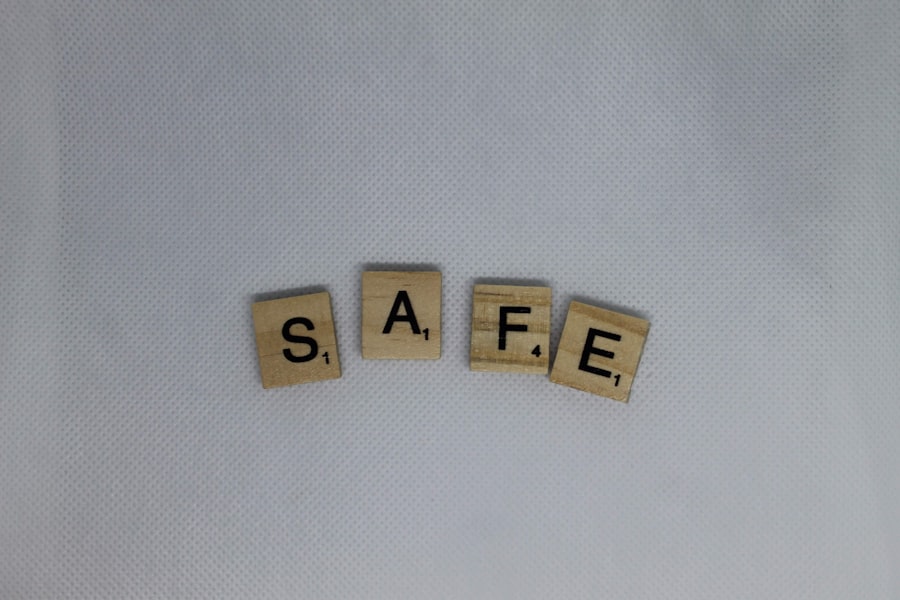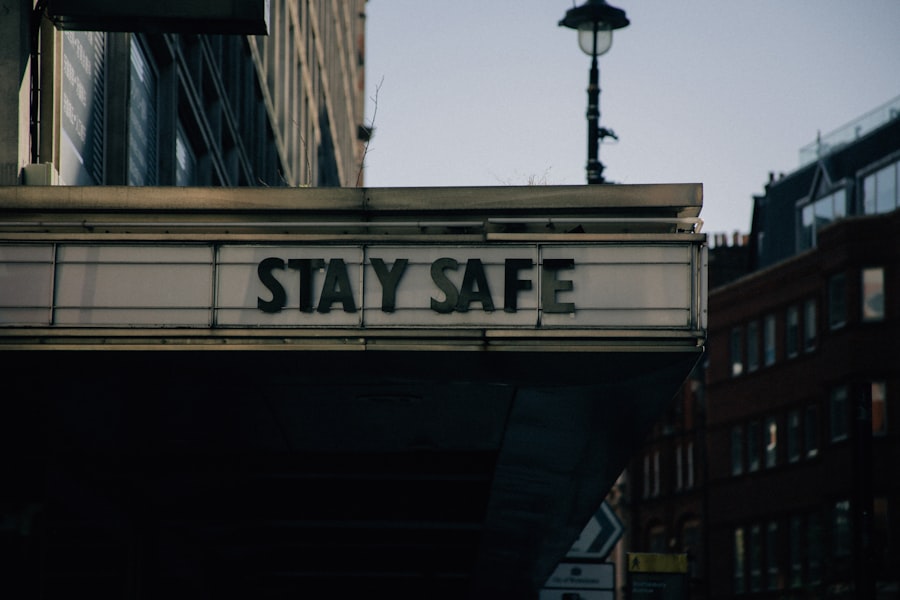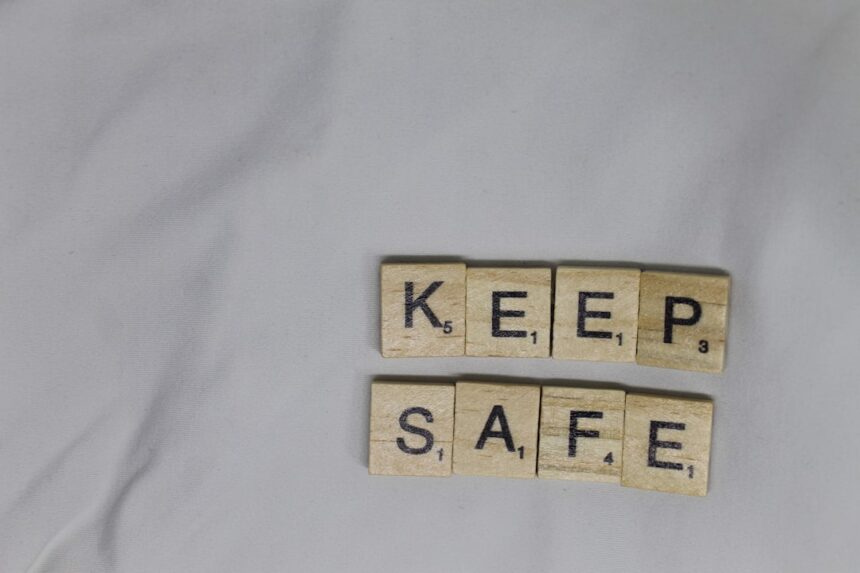Psychological safety is a concept that refers to an environment where individuals feel secure enough to express their thoughts, ideas, and concerns without fear of negative consequences. In such an environment, you can share your vulnerabilities, ask questions, and admit mistakes without the worry of being judged or ridiculed.
It is essential for creating spaces where creativity and innovation can thrive, as you are more likely to take risks when you feel supported. In the context of recovery, psychological safety becomes even more critical. You may find yourself grappling with feelings of shame or fear about your past experiences, which can hinder your progress.
When you are in a psychologically safe environment, you can confront these feelings openly and honestly. This openness not only aids in your healing process but also helps build trust among peers and facilitators, creating a supportive network that is vital for recovery.
Key Takeaways
- Psychological safety is the belief that one will not be punished or humiliated for speaking up with ideas, questions, concerns, or mistakes.
- Psychological safety is crucial in recovery as it allows individuals to feel secure enough to take risks and be vulnerable in their journey towards healing.
- Psychological safety can have a significant impact on mental health, as it creates an environment where individuals feel comfortable expressing their emotions and seeking help.
- Building psychological safety in recovery environments involves creating a culture of trust, empathy, and open communication.
- Support systems play a vital role in creating psychological safety by providing encouragement, understanding, and a sense of belonging for individuals in recovery.
The Importance of Psychological Safety in Recovery
The importance of psychological safety in recovery cannot be overstated. When you are in a safe environment, you are more likely to engage in the recovery process wholeheartedly. You can share your struggles and triumphs without the fear of being dismissed or belittled.
This openness allows for deeper connections with others who may be experiencing similar challenges, fostering a sense of community that is essential for healing. In such an environment, you can explore your feelings and thoughts without the burden of judgment, which can significantly enhance your recovery journey. Moreover, psychological safety encourages you to take ownership of your recovery.
When you feel safe, you are more inclined to set personal goals and work towards them actively. You can discuss setbacks and challenges candidly, which is crucial for developing resilience. This resilience is not just about bouncing back from difficulties; it’s about learning from them and using those lessons to propel yourself forward.
In a psychologically safe space, you can embrace the ups and downs of recovery as part of your growth rather than as failures.
How Psychological Safety Affects Mental Health

Psychological safety has a profound impact on mental health. When you feel safe to express yourself, it reduces anxiety and stress levels, which are often exacerbated by fear of judgment or rejection. In a supportive environment, you can articulate your feelings and thoughts without the weight of stigma hanging over you.
This freedom allows for emotional release and can lead to improved mental well-being. You may find that simply being able to voice your concerns alleviates some of the burdens you carry. Additionally, psychological safety promotes self-acceptance and self-compassion.
When you are in an environment that encourages vulnerability, you learn to accept your flaws and imperfections as part of being human. This acceptance is crucial for mental health because it fosters a positive self-image and reduces feelings of shame or inadequacy. As you cultivate self-compassion, you become more resilient in the face of challenges, allowing you to navigate the complexities of life with greater ease.
Building Psychological Safety in Recovery Environments
| Metrics | Results |
|---|---|
| Team Member Participation | 80% |
| Openness to Sharing Ideas | 90% |
| Conflict Resolution | 75% |
| Trust in Leadership | 85% |
Building psychological safety in recovery environments requires intentional effort from both facilitators and participants. It starts with establishing clear norms that promote respect and openness. You can contribute to this by actively listening to others and validating their experiences.
When everyone feels heard and valued, it creates a foundation of trust that is essential for psychological safety. Encouraging open dialogue about fears and concerns can also help dismantle barriers that prevent individuals from sharing their true selves. Another critical aspect of building psychological safety is fostering an atmosphere of empathy and understanding.
You can play a role in this by being mindful of your language and actions. Avoiding judgmental comments and instead offering support can make a significant difference in how others perceive their safety within the group. Additionally, creating opportunities for shared experiences—such as group discussions or activities—can help strengthen bonds among participants, further enhancing the sense of safety.
The Role of Support Systems in Creating Psychological Safety
Support systems play a vital role in creating psychological safety during recovery. Whether it’s friends, family, or support groups, having a network of people who understand your journey can provide the reassurance you need to feel safe expressing yourself. These support systems offer not only emotional backing but also practical advice and encouragement that can help you navigate the complexities of recovery.
Moreover, support systems can help normalize the challenges associated with recovery. When you share your experiences with others who have faced similar issues, it reinforces the idea that you are not alone in your journey.
This shared understanding fosters a sense of belonging that is crucial for psychological safety. You may find comfort in knowing that others have walked similar paths and have emerged stronger on the other side.
Overcoming Barriers to Psychological Safety in Recovery

Despite its importance, several barriers can hinder the establishment of psychological safety in recovery environments. One significant barrier is stigma—both internal and external—that often surrounds mental health issues and addiction. You may feel ashamed or embarrassed about your struggles, which can prevent you from fully engaging in the recovery process.
Additionally, societal stigma can lead to judgment from others, making it even more challenging to find a safe space for expression. Another barrier is fear—fear of vulnerability, fear of rejection, or fear of not being understood. These fears can create walls that isolate you from others who could provide support and understanding.
Overcoming these barriers requires courage and a willingness to confront uncomfortable emotions. It may involve seeking out environments that prioritize psychological safety or advocating for change within existing groups to foster a more inclusive atmosphere.
Strategies for Cultivating Psychological Safety in Personal Recovery
Cultivating psychological safety in your personal recovery journey involves several proactive strategies. First and foremost, practice self-compassion. Acknowledge that it’s okay to struggle and that setbacks are part of the process.
By treating yourself with kindness during difficult times, you create an internal environment that mirrors the external safety you seek from others. Additionally, consider setting boundaries that protect your emotional well-being. Surround yourself with individuals who uplift and support you while distancing yourself from those who contribute to feelings of judgment or negativity.
Engaging in mindfulness practices can also enhance your sense of safety by helping you stay grounded in the present moment, reducing anxiety about past mistakes or future uncertainties.
The Impact of Psychological Safety on Relapse Prevention
Psychological safety plays a crucial role in relapse prevention during recovery. When you feel safe discussing your triggers and challenges openly, it becomes easier to develop strategies for managing them effectively. You can share your experiences with others who understand what you’re going through, allowing for collaborative problem-solving that strengthens your coping mechanisms.
Moreover, a psychologically safe environment encourages accountability without fear of punishment or shame. You can openly discuss any slip-ups or cravings without feeling like a failure; instead, these discussions become opportunities for learning and growth. This approach fosters resilience and empowers you to take proactive steps toward maintaining your recovery.
The Connection Between Psychological Safety and Self-Esteem
There is a strong connection between psychological safety and self-esteem. When you feel safe expressing yourself without fear of judgment, it enhances your sense of self-worth. You begin to recognize that your thoughts and feelings are valid, which contributes to a more positive self-image.
In contrast, environments lacking psychological safety can lead to feelings of inadequacy and self-doubt. As you cultivate psychological safety within yourself and in your interactions with others, your self-esteem naturally improves. You learn to appreciate your unique journey and recognize the strengths that have brought you this far.
This newfound confidence not only supports your recovery but also enriches other areas of your life.
Cultivating Psychological Safety in Group Therapy Settings
In group therapy settings, cultivating psychological safety is essential for effective healing and growth. Facilitators play a crucial role in establishing ground rules that promote respect and confidentiality among participants. As a member of the group, you can contribute by actively engaging with others’ stories and offering support rather than judgment.
Creating opportunities for sharing personal experiences can also enhance psychological safety within group therapy. When individuals feel comfortable sharing their struggles and triumphs, it fosters a sense of belonging that is vital for healing. Encouraging feedback among group members helps reinforce the idea that everyone’s voice matters, further solidifying the foundation of trust necessary for psychological safety.
Measuring and Monitoring Psychological Safety in Recovery Programs
Measuring and monitoring psychological safety within recovery programs is essential for ensuring their effectiveness. Surveys and feedback forms can be valuable tools for assessing participants’ feelings of safety within the environment. Regular check-ins allow individuals to voice their concerns or suggestions for improvement, fostering a culture of continuous growth.
Additionally, facilitators should be trained to recognize signs of discomfort or disengagement among participants. By being attuned to these signals, they can take proactive steps to address any issues that may arise, ensuring that psychological safety remains a priority throughout the recovery process. Ultimately, creating an environment where individuals feel safe is an ongoing commitment that requires vigilance and adaptability from everyone involved.
In conclusion, psychological safety is a cornerstone of effective recovery environments. By understanding its importance and actively working towards cultivating it within yourself and among peers, you can significantly enhance your healing journey while supporting others along the way.
Psychological safety plays a crucial role in the recovery process, providing individuals with a supportive environment where they feel secure to express themselves without fear of judgment or repercussions. This concept is essential for fostering open communication and trust, which are vital for effective healing and growth. For a deeper understanding of how psychological safety can impact recovery, you can explore a related article on this topic by visiting Unplugged Psych. This resource offers valuable insights into creating environments that promote psychological well-being and support individuals on their journey to recovery.
WATCH NOW! 😱😱😱😱😱The Secret Psychology Cults Use on Anyone
FAQs
What is psychological safety in recovery?
Psychological safety in recovery refers to creating an environment where individuals feel safe and supported in expressing their thoughts, feelings, and experiences related to their recovery journey without fear of judgment or negative consequences.
Why is psychological safety important in recovery?
Psychological safety is important in recovery because it allows individuals to be open and honest about their struggles, seek help when needed, and engage in effective communication with their support system. It also promotes a sense of trust and belonging, which are crucial for maintaining motivation and making progress in recovery.
How can psychological safety be fostered in recovery settings?
Psychological safety can be fostered in recovery settings by promoting open and non-judgmental communication, providing opportunities for individuals to share their experiences, actively listening to and validating their feelings, and creating a supportive and inclusive environment where everyone feels valued and respected.
What are the benefits of psychological safety in recovery?
The benefits of psychological safety in recovery include increased trust and rapport among individuals in recovery and their support system, improved mental and emotional well-being, enhanced motivation and engagement in the recovery process, and a greater likelihood of successful outcomes in the long term.
How does psychological safety impact recovery outcomes?
Psychological safety positively impacts recovery outcomes by creating an environment where individuals feel comfortable seeking help, sharing their struggles, and engaging in open and honest communication. This can lead to improved mental and emotional well-being, increased motivation, and a greater likelihood of sustained recovery.




